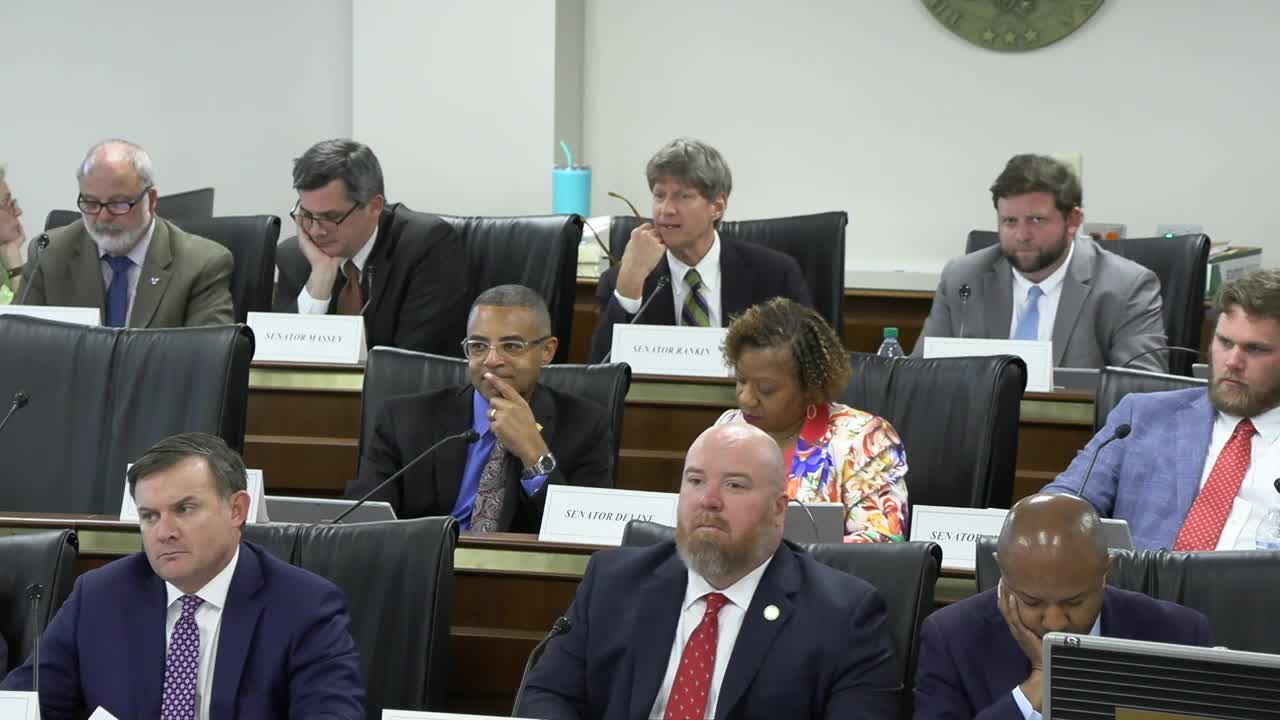Article not found
This article is no longer available. But don't worry—we've gathered other articles that discuss the same topic.
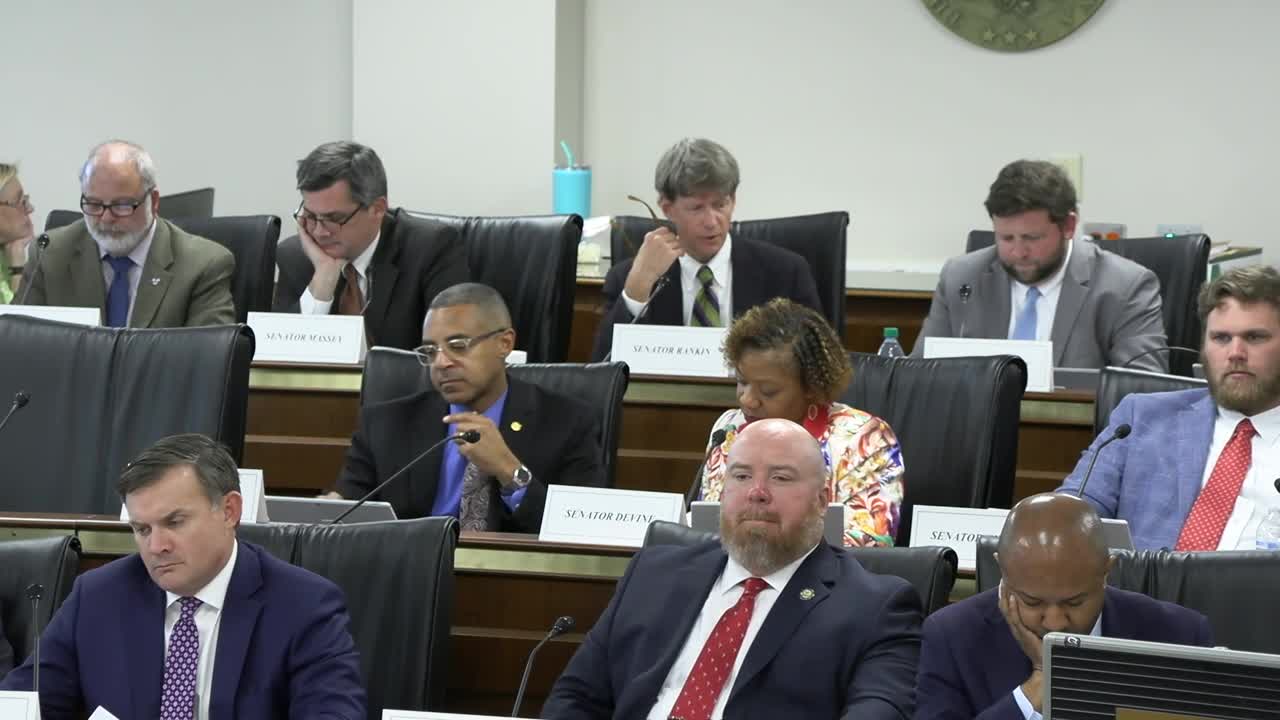
Committee adopts subcommittee amendment and advances broad energy bill covering siting, procurement, small modular reactors and joint projects
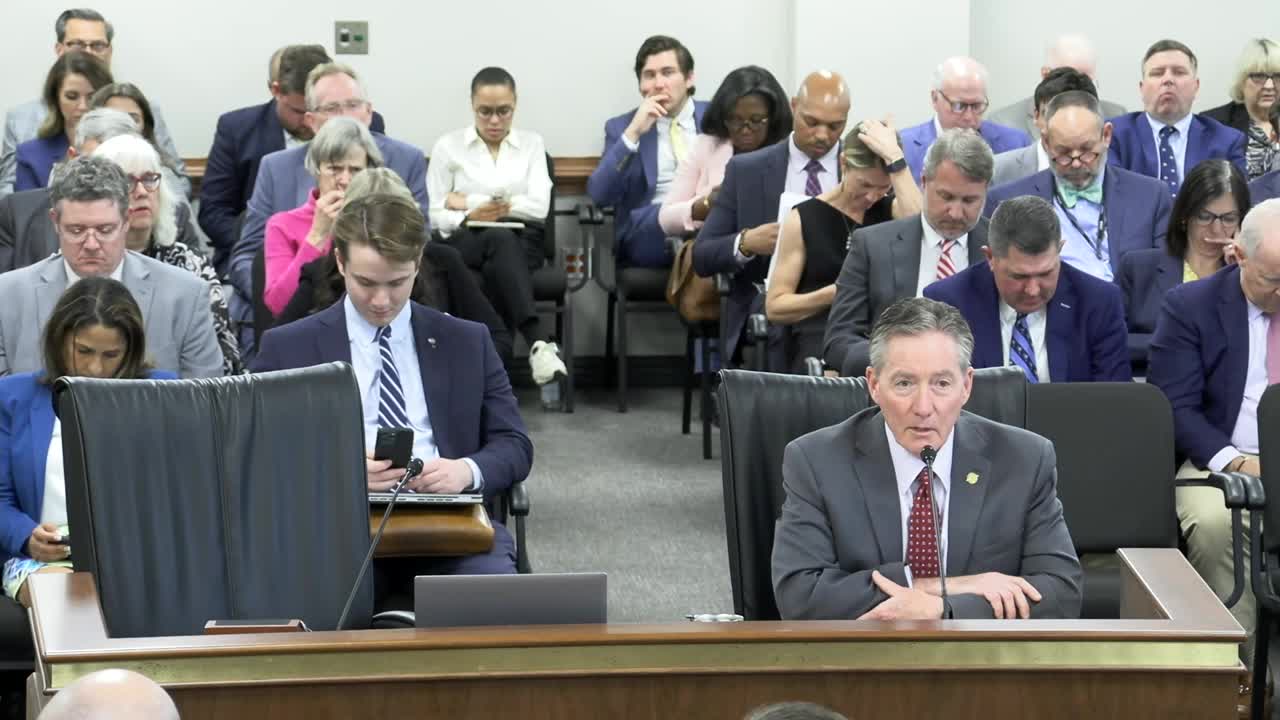
Senate advances overhaul of criminal-gang and racketeering laws; adds youth-prevention fund amendment on floor
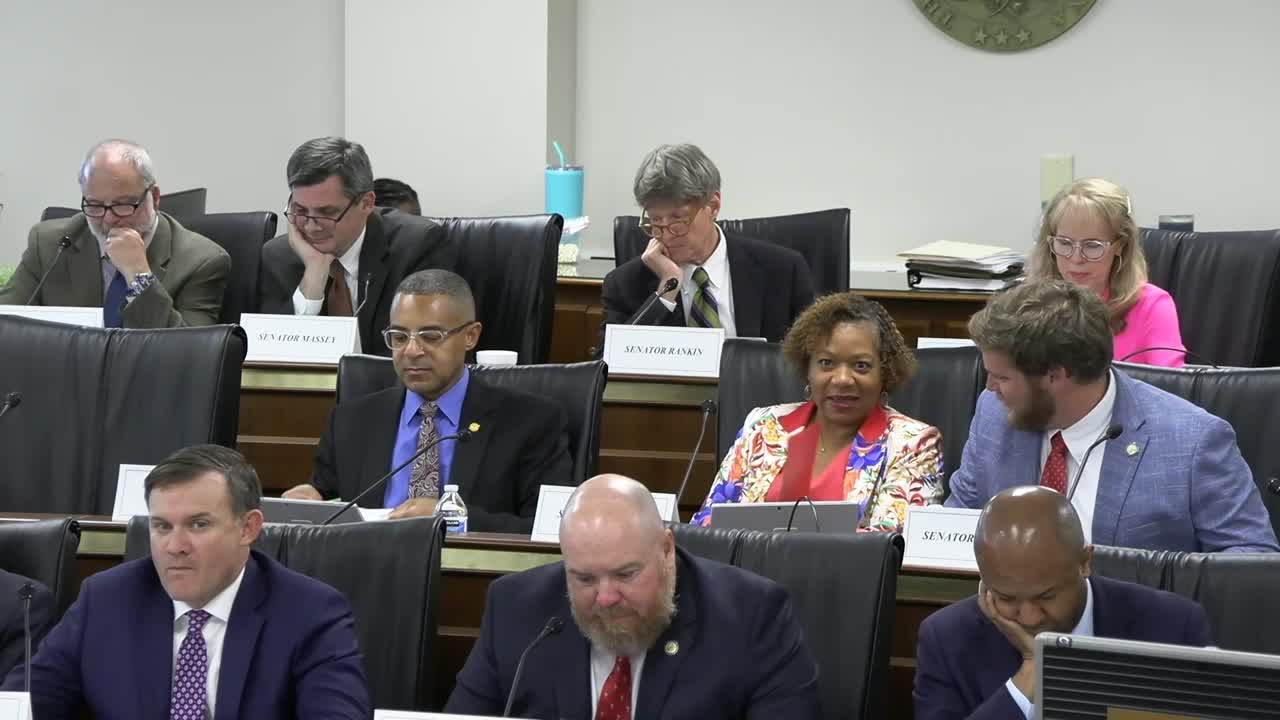
Committee adopts amendment to attempted-murder statute to address intent and transferred intent
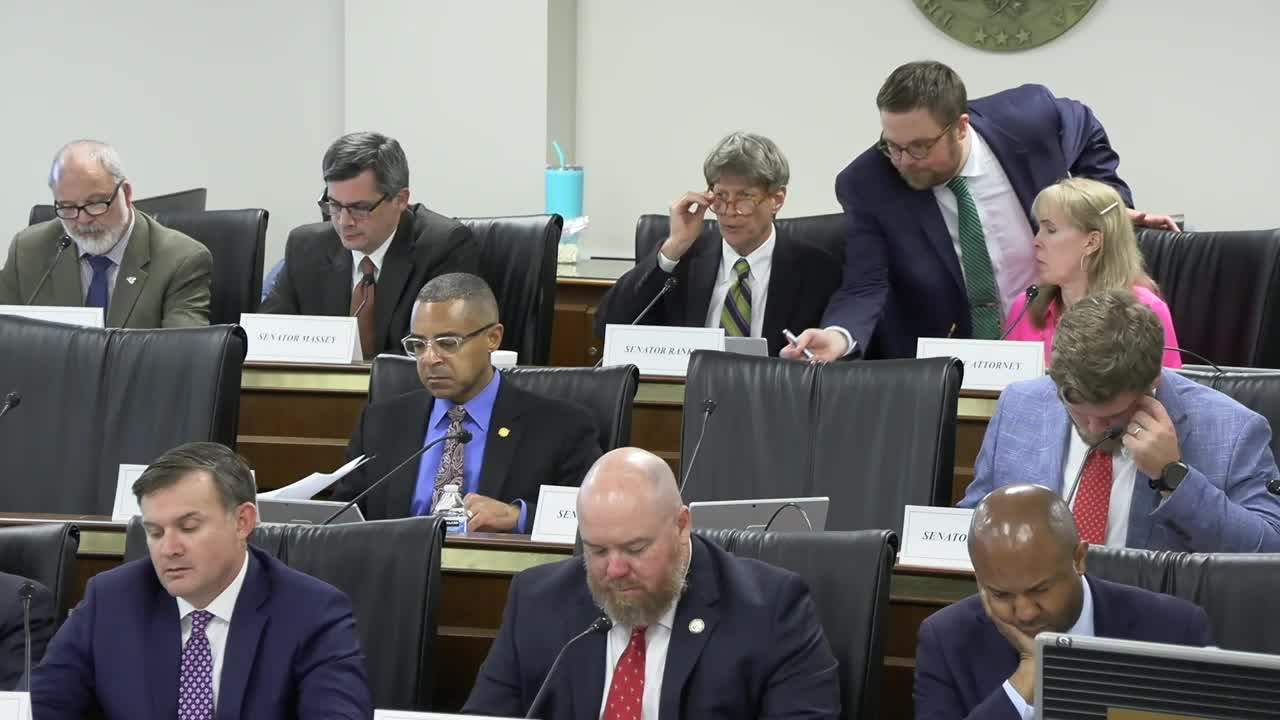
Senate panel advances bill to raise age for homicide-by-child-abuse charge to 18
